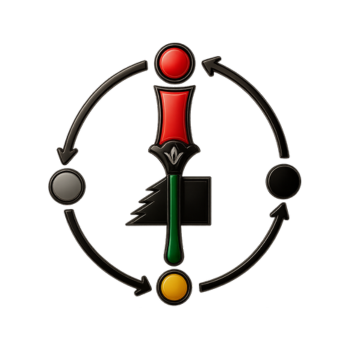-
Types of Social Parasites
There are three main types of social parasites that form mixed species ant nests: temporary social parasites, permanent inquilines and slave-makers.
1. Temporary social parasites invade a host species, kill the queen and start a new colony.
2. Permanent inquilines tolerate the host queens while producing their own brood
3. Slave-makers raid other ant colonies to steal the brood and enslave captive workers
Lessons from slave-maker ants:
• Slave-maker ants use deception to invade established colonies: Glandular secretions released during raids serve to pacify or turn workers from target colonies against each other, reducing aggression towards the slave-makers
• How is enslavement maintained? Enslaved ants are chemically imprinted and completely integrated into the society of their enslavers.
• What are the daily duties of enslaved ants? enslaved ants care for the brood, gather food, feed their enslavers, care for the queen, and defend the nest against threats. If the colony moves to a new location, the slaves carry their enslavers to their new nest. Sometimes, the slaves even participate with the slave-making workers in slave raids against other ant colonies of their own or closely related species.
• Why are slave-maker ants dependent on slaves? Although the modified mandibles of obligate slave-makers are effective weapons, they also make the slave-makers inept nurses and foragers, and incapable of managing their colony tasks without slaves. Indeed, P. breviceps cannot survive on its own even if plenty of food is available. This ant must have slaves to survive, and mature colonies must obtain a minimum of about 6000 slaves per season per colony to maintain a high proportion of slaves (Savolainen & Deslippe 1996).
• How do host ants defend against slave-maker raids? Host defense portfolios shift from collective fight to flight with social parasite pressure over large geographical ranges. Host populations in which the slavemaker is rare or absent more frequently show collective aggression (fight), whereas highly parasitized populations are more likely to respond to an intruding slavemaker by evacuating their nest site (flee).
• What techniques do host ants use to destroy slave-makers? Enslaved Temnotho-rax workers, revolt against captor ants by attacking slave-making pupae under their care. The elimination of parasite brood by enslaved Temnothorax workers can be seen as a second line of defense, when host nest defense has failed.Read more… https://www.nature.com/scitable/knowledge/library/social-parasitism-in-ants-13256421/

